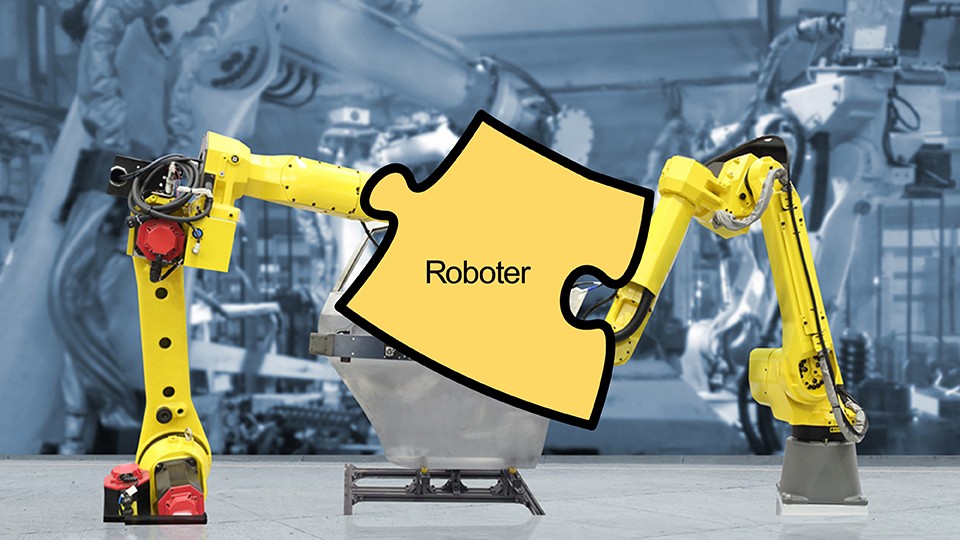Introduction
A number of writers have already addressed the topic of automation and robotics, as this could pose a number of risks for the labour market of the future. Many work steps are already carried out by robots today, but they can only be used in a stationary position.
Digitalisation on the labour market
This is not science fiction, but already a reality in some areas. Digital intelligence is already here, even if the robots are not yet able to think for themselves. They are still rather clumsy and can't really do much. But in Silicon Valley, a programme has long been in place to
However, a doctor would still be involved, because it wouldn't work without the doctor's help. Is that really what is being researched here? No, because such research is paid for by the industry. So it is clear what is actually planned here. One day in the future, people will simply be replaced.
The industry doesn't care what happens to the many unemployed. But there are a few errors in reasoning here, because robotics will not only lead to job losses. The rise of robots also has consequences for industry, because without people to buy their products, they won't be able to make any profits. Unfortunately, industrialists don't see it that way, they only see the benefits. Because robots don't go on strike, don't demand wages and, above all, don't demand holidays or a 40-hour week.
This means that the rise of robots could become a reality in the near future, just as it has been shown in many films.
Gloomy outlook for the labour market
Not for all people, but probably for the majority. Although robots will not become independent thinking beings in the near future, research is already moving in this direction. This could mean unemployment for many people, but many are already falling by the wayside. Of course, many housewives would be happy to have a robot doing the washing, ironing, cooking and looking after the children. Unfortunately, many jobs would already be lost here, including cleaning staff, nannies and cooks who would then be unemployed.
Childcare places could then also be saved, i.e. the labour force here too. All of this just by having a robot for the household, however practical it might be. Even here, digital intelligence is already being tested in individual areas, although of course it can only be used in isolated cases. It can already be used in films, but only here. However, digital marketing already promises a lot today, which would significantly change the labour market of the future. Automation is already unstoppable today, which means that robots have made many people unemployed. Ordinary workers in particular have been made unemployed by robots and automation.
Digital marketing promises a lot of savings here, because robots only do what they have been programmed to do. This is where the current technology in robotics stands, but the visions go further. The final technology is still lacking, but there are also various trials in Germany. This is not just about automation, but about robots that can learn independently. This would be the prerequisite for robots to be able to occupy even more areas in the world of work.
Future or science fiction
Robots are already making people unemployed today, but these are more likely to be automated machines that are already replacing people. This is already having an impact on the labour market, including digital marketing. Of course, these are not yet real robots, but the rise of robots is unstoppable. Many company owners cannot and do not want to see the consequences of this.
The labour market of the future will therefore place some high demands on people. There will no longer be any ordinary workers; only highly specialised professions will have a future. Digital intelligence will create some new areas of work, but it is doubtful whether these will be long-term. This is exactly what digital marketing is already aiming for today, although it is still more about machines. The fact that machines are supposed to make many jobs easier is not a modern phenomenon. The ancient Greeks were already working on this and the first moving stage sets were created.
However, this technology also disappeared at the same time as high culture, which meant that it disappeared for centuries. But even Leonardo da Vinci had already dealt with automatons in some of his paintings. Of course, digital marketing and robotics were still completely foreign at the time, but some machines had already been built.
Of course, these had nothing remotely to do with today's robots; rather, they were mechanical devices that were also made of wood. However, the labour market of the future had not yet been influenced here either, and it was less about digital intelligence. Unemployment due to robots was also not an issue back then, as it was simply a matter of research and a new development.
The dream of mankind or rather a nightmare?
Of course, robots are still dreams of the future, but there are already many unemployed people due to computers. The forerunners of robots already have a firm grip on many areas, which means that the labour market of the future is already taking place today. Although computers have made work easier in some areas, they have unfortunately also made many jobs redundant.
The labour market has already changed significantly in recent years, as robotics is finding its way into more and more areas. Those who can't keep up are already being discarded. Although the rise of robots as an independent intelligence is not yet a reality, research is optimistic. Experiments in this area usually take place behind closed doors, which leaves plenty of material for films and, above all, speculation.
From time to time, there are also developments that make it into everyday life. This is the case with smartphones and digital marketing. Until now, digital marketing was more commonly known as online marketing, but this is only a fraction of what digital marketing actually is. Today, almost everyone is familiar with this type of marketing, because digital marketing is currently increasingly being shown on the Internet. There is hardly a website that does not contain advertising, although digital marketing covers many more areas. Although this is not yet the real rise of the robots, it is already having a major impact on the labour market of the future.
More and more services are being performed by machines, which are actually small robots. The labour market has already developed negatively as a result of robotics and automation, because people have simply been replaced by machines. This includes the cash machine as well as the ticket machine. Hardly any contact with an employee is the result, and branches are also being closed in various service sectors.
The good old days
Whether it was always so good is open to question. Some things have been made easier by computers and smartphones, while others have led to many people becoming unemployed. The labour market of the future began with the invention of the telephone. However, jobs were still being created here, as automation had not yet taken place at that time. Digital marketing was not yet practised and digital intelligence was still a long way off.
The younger generation can hardly imagine that there was a time when there were no mobile phones and computers. Having a telephone in your own household was a great luxury. This has changed considerably in the last few years, which is when unemployment caused by robots began. Firstly in industry, where automation has created many unemployed people. This was always kept a little quiet, because robots were praised as a relief for people. This was indeed the case at first, but things have changed somewhat in the meantime.
As technology has developed, so too has the rise of robots. Whereas they used to be rather clumsy and clumsy machines, robots are now able to take over complicated work processes. Humans are still needed, but the question is for how much longer. This means that robots are already making unemployment a reality, which means that the labour market of the future is already taking place today. Of course, digital marketing will convince people of their usefulness, but whether this is always the case remains to be seen.
Digital marketing has also been used to massively promote smartphones, which means that almost everyone now owns one. For some young people, the mobile phone would have to be surgically removed because they can no longer take a step without their smartphone. This is just one small example of how digital marketing is already a big part of our lives and can influence them. Of course, digital intelligence is still in its infancy here, but the labour market is already heavily influenced by robotics and automation.
Fighting machines for war
Today, the technology is mainly used for peaceful purposes, but research has been driven by the military. As early as the 19th century, the aim was to develop boats with remote control. Of course, when it came to war, there was always a lot of money available. To ensure that normal people liked the research into robotics, it was made palatable to them by reducing the number of deaths in war.
However, digital intelligence was less of a priority here, as the computers were simply too big for this. Computers the size of a house had to be used for simple calculations. But even at this time, there was digital marketing, because they had to market the latest inventions. But back then it wasn't called digital marketing, it was simply advertising specialists, and then advertising agencies. In the same way, advertising was severely restricted until a few years ago, which is no longer the case today.
However, powerful computers only became possible from 1947 onwards, as transistors were invented in this year. This made it possible to build computers with high performance for the first time, which, as mentioned, were still as big as a house. So that people could recognise that the computer was working, some lamps lit up here and there.
Anyone who sees these computers today can hardly believe it. Thanks to transistors, it was finally possible to build smaller computers, but they were hardly any more powerful than a smartphone can be today. A PC at home was the future and unimaginable. Today it is completely normal, but until a few years ago it was still a fantasy and more likely to be seen in films.
Living with robotics
Of course, people have come to terms with robotics and automation, even though they already have some disadvantages. Who thinks about the fact that there is already a lot of robotics in the television when they switch it on? Nobody, but our televisions are actually little computers that are designed to make our lives easier. Digital marketing also ensures that the TVs are really great. Whether we really need them is questionable.
However, automation has also found its way into this sector, as manufacturing processes are now being carried out by more and more machines, or rather robots. The rise of robots is currently unstoppable, especially in industry, and research is now only funded to a limited extent by the military. Robotics can already be used against humans, as they are simply being rationalised away. The rise of robots is currently still limited, but what will this look like in just a few years' time?
The labour market of the future will probably no longer exist. Because the further robotics goes, the less people and their labour will be needed. Robots are making more and more people unemployed, although this phenomenon is being denied today. But if you take a closer look, you can already see this happening today. The labour market has already developed in the wrong direction, although this currently has less to do with robotics and automation. More and more older people are being replaced by younger people, but these are often already being replaced by robots or automated machines.
Unemployment due to robots is not yet happening in all sectors, but the pressure on workers is there. Wages are getting lower and lower because the threat is always in the foreground. Digital intelligence is on the rise, although this could be useful for some areas and already is. No car driver thinks about how much digital intelligence is in their car. But even these cars can hardly get off the ground today without a computer. This is why the job description of a car mechanic has changed fundamentally. Up until 10 years ago, mechanics could simply work on the car, but today a computer has to analyse the electronics first.
Here, too, the labour market has changed considerably, because now fewer workers are needed where previously perhaps three or four workers were required. As a result, there have been many unemployed people in this sector who were then disposed of like rubbish or discarded like old cars. Years of experience no longer counted, as the technology was simply no longer available. Those who didn't recognise the change in time were then made unemployed by robots or computers. Because that is exactly what robotics is, although this is often misjudged.
Computers and robots are almost one, although a PC cannot walk. This is also the aim of research in robotics, but it doesn't look particularly stable at the moment. A few steps or movements and that's it. This is why many people do not see their jobs in danger, but the rise of robots has long since begun. Completely unnoticed, with digital marketing always making the latest technological achievements palatable to us. Worse still, digital marketing gives people the feeling that they urgently need the latest achievements. Many people are no longer able to judge whether this is really the case. Unconsciously, digital marketing has found its way into our lives, which then also affects the labour market of the future.
Specialised professions have already emerged and will continue to do so. Many areas are still spared from robotics, as only humans can do the work here. The emphasis here is on still, because our luck at the moment is that robotics is not yet so far developed. However, it is not just robotics research that needs to be considered here.
Genetic research and robotics
Many people wonder what this has to do with automation. But it has, because genetic research is now going further. Genetic research is already making it possible to grow smaller organs. This would actually be a great way to help seriously ill people. But what would it look like if brains could be grown artificially? This is exactly where various films come in, which paint a less beautiful picture of our future.
Because in these films, the rise of the robots has already taken place, with humans always getting the short end of the stick. The labour market of the future simply envisages robots making us unemployed. Worse still, robotics is trying to eradicate humans, because we will simply become superfluous. Robotics consists of logic, but we humans are anything but logical beings. Digital intelligence then suppresses humans and has banished them to camps. Hitler 1.0, but only controlled by robots.
Programmes designed to prevent this are then ineffective, because the robots have programmed themselves. A future that nobody really wants to experience, solely through digital intelligence. As a result, there will no longer be a labour market, because people will simply no longer be needed. They are constantly at their limits or ill, which is something robots are not. They may have a malfunction, but they can be repaired in a matter of minutes.
The labour market will then only be looking for robots and perhaps a human to entertain the robots personally. Otherwise, problems will be solved differently, by eliminating humans. This guarantees that there will no longer be a labour market in such a future and digital marketing will also become superfluous.
A future that is not a future
Digital intelligence is already very advanced today, but humans are still needed. This means that the rise of robots is currently still limited, but the question here is how much longer and what we humans will make of it. Robotics can also be a great advantage for us humans, which is already being utilised in medicine today. Doctors have already adapted to this and are happy to use this technology.
The error rate in diagnostics has fallen, which in turn benefits us all. Even individual surgical steps are already being supported by robotics, and the labour market has already adapted to this. In this area, the rise of robots makes sense and robots are not going to make anyone unemployed. Robotics and doctors are a team, which makes sense. So our future doesn't have to look so bleak, although this also depends on the industry. However, this is where the greatest danger lies, especially as far as the labour market of the future is concerned. Greed for money is also a factor that is unfortunately already creating many unemployed people today. This means that the whole of humanity is in demand, but especially the industrialists. Automation does not have to be a bad thing, it can even be a good thing.
Automation is a blessing for workers, especially when it comes to monotonous tasks. Robotics also helps here, with robotic lines that can often take on not only boring but also dangerous tasks. This is really very good for us humans and the labour market is also geared towards this. The labour market of the future envisages other tasks and professions, whereby unemployment is possible due to robots. Those who do not adapt to the labour market of the future and take action will simply be made unemployed by robots.
Digital intelligence has already made our lives much easier in many areas. The rise of robots can also be seen in a positive light, as can the labour market of the future. However, there are many hidden dangers here if ethics are simply thrown overboard. This is exactly what is currently happening, which is already dominating the labour market. Ever higher demands are being made where many people can no longer keep up. Unemployment due to robots or the rise of robots is therefore a major problem, especially for people who are less qualified. Digital intelligence has long since entered our lives, which means that the labour market has long since changed.
Making sensible use of the rise of robots
This can be possible, and there are already many examples of this. Many people are not aware of the constant presence of robotics in our lives, because we deal with it every day. However, there are still many ways in which robotics could be used to benefit people.
Some trials are already underway, such as a car with no driver at all. This could save many lives that are still being lost in accidents. The biggest source of error here is human error, which could be improved with automation. There are already some cars that measure the minimum distance and even brake when danger is imminent. Here, digital intelligence is more than just helpful, it is a lifesaver. Robotics and the rise of robots can therefore be something very good for people again.
On the other hand, it would be bad if there were suddenly only robots as bus or taxi drivers. In this case, automation would again have a negative impact on the labour market of the future and the rise of robots would have gone in the wrong direction. The rise of robots does not necessarily have to be bad for the labour market of the future, which also eliminates unemployment due to robots. However, unemployment caused by robots is concealed, as is the labour market of the future. For many people, the rise of robots is therefore a threat that does not necessarily exist. The labour market has already reacted to some extent, but unfortunately not enough.
Digital intelligence and automation will therefore continue to leave many people unemployed due to robots. Automation is also being pursued in the wrong way here, because people are to be completely replaced. Digital marketing often makes such scenes palatable, regardless of the sector. Who would want to order their food from a vending machine? Of course, robotics would reduce waiting times, as there would simply be more of them.
Digital intelligence can be a threat, especially when it comes to the labour market of the future. The rise of robots can still only happen with the help of humans, because the automation of robotics is still being researched.
Robotics a help for people
This is already possible today and is in turn used in medicine. Disabled people are often very grateful for this help. Robotics could also be a good help in the care sector, where there are many vacancies. The labour market of the future has already missed out a lot here, as fewer and fewer young people want to work in these underpaid jobs. Digital intelligence is already being used here, but only to the extent of its current potential, of course.
This means that no one will be made unemployed by robots, as there are no people for these jobs. Of course, this is not complete automation, but robotics helps people to lead an independent life. Unemployment due to robots need not be the case if the labour market of the future is already responding. Of course, only in co-operation with industry, which is currently still lacking. Robotics doesn't have to be bad, just as digital intelligence and automation can be used sensibly.
The rise of robots can be just as useful, which means that unemployment due to robots does not necessarily have to have major consequences. Robotics in cooperation with humans can be helpful, but only if the labour market adapts. The labour market has always reacted far too late, regardless of the sector. But the labour market doesn't have to react alone, people have to react too. This is the biggest problem, which can also mean unemployment due to robots. Unemployment due to robots is already having an impact on the labour market, especially if someone is unskilled.
It's not just robotics or automation that has deprived these people of opportunities. The rise of robots has already taken many jobs here. Automation is the future, and it is already here today. With a labour market of the future where unemployment due to robots can happen at any time, this is actually no longer a future.
We have digital intelligence in our pockets every day. Unconsciously, of course, and thanks to digital marketing, everyone has to have it. A smartphone, because nothing works without it. So the rise of robots has been going on for a long time without us realising it. Digital intelligence and robotics have had us in their grip for a long time.
The labour market of the future and the labour market today
The labour market of the future and today's labour market will be similar, because this labour market has already changed considerably. Anyone who does not react to the changed situation now has absolutely no chance on the current labour market. Unfortunately, not everyone is able to react to this because they simply lack the education.
Unthinkable, but this is where many people reach their limits. As a result, the labour market is already in a state of upheaval, with schools at the back of the queue. This is where the real problem begins, because robotics and automation are also creating new professions. Automation in particular is on the rise here, although this doesn't have to be a bad thing. People who are less talented have no chance either on the current labour market or on the labour market of the future.
This means that unemployment due to robots is already an issue today, especially with automation. Digital intelligence will be unstoppable, so the labour market should also react quickly. Digital marketing is less useful here, but could be helpful. After all, digital marketing could introduce new professions. However, many do not see their responsibility here, but digital marketing only shows us the nice new products. Digital marketing also shows us whether we really need them. Of course we need them, but only according to digital marketing.
Digital intelligence and digital marketing are working together here. Robotics and automation have us firmly in their grip, just like digital marketing. Unemployment due to robots and the rise of robots has so far always been negative, without looking at the positive sides.
Automation can be an opportunity
In many areas, digital intelligence is more than just helpful, because digital intelligence is already helping in many areas today. Robotics is still viewed with trepidation, perhaps because research is being conducted behind closed doors. This is why automation is also fraught with fear, but not unfounded. Although digital intelligence is more precise and accurate than any human can ever be, it is not currently possible to do completely without humans.
That's why we have to come to terms with robotics, especially when it comes to automation. However, many older people have a problem here, as they are often not even able to buy a ticket from a ticket machine. This is compounded by their fear of technology and the fact that they are unable to make friends with digital intelligence. As a rule, they can no longer become unemployed, as pensioners are often affected by this problem. The only thing that works smoothly is getting money from a vending machine.
Older people have learnt this quickly, but they don't want to use other digital devices. However, this does not apply to all older people, as some think a computer or smartphone is great. Others are reluctant to use them and are simply left behind. So it's not just the labour market that needs to become more flexible, but people too. So far, there has been little benefit, for example in medicine or for the disabled. Care for the elderly could also be simplified in this way, which is already being done on a very small scale. The labour market of the future must respond to this, especially in Germany.
This is because fewer and fewer young people are meeting people who are getting older and older. Carers in this area are in short supply, so robotics can improve things here.
Robotics and ethics
What can industrialists do to improve the situation? This is where the greatest danger lies, because profit comes first. They do not see any responsibility towards their employees and therefore also towards people. Although this is nothing new, the rise of robots has exacerbated the situation. This is because they only see profit, regardless of how it comes about. This is why automation continues, regardless of losses.
This poses a major risk, especially for the labour market of the future. There is also the potential for social unrest, and there already is. Workers are still keeping their cool, but how much longer can this go on? At the latest when the rise of robots penetrates more and more areas of the labour market and there are more and more unemployed people due to robots. Not all people will be able to react, which will only exacerbate the situation. It's a spiral that is currently spiralling further and further in exactly the wrong direction.
This can now also be felt in Germany, as people are in sheer fear. Their jobs are in danger at all times and there is no prospect of a new job. They would rather use a robot or a computer that doesn't demand a wage. Only one or two people are still needed, because the robots also need to be maintained. So the fear is justified, because ethics are currently being neglected. If some people here are hoping for politics and the trade union, they will probably be bitterly disappointed. Standing still is the current motto, but this tactic is wrong. If something is not done now, there will be no future for the people.
A hopeless future after all?
That doesn't have to be the case if we react correctly now. In some areas, there is successful collaboration between digital intelligence and humans, which means there are fewer unemployed people due to robots. Job profiles have changed, and a few people have responded successfully to this. However, on their own initiative, i.e. from their own resources.
Not everyone can afford this, so everything remains the same. Unemployment due to robots is omnipresent, even if it only exists in some areas. At the moment, we can be glad that research has some projects underway, but they still involve humans. This also applies to the car of the future, without a human driver. Anyone who observes some car drivers will certainly have nothing against this idea. No people swearing and honking their horns, or simply ignoring a red light.
Drivers will then be able to make phone calls or read the newspaper, robotics will make it possible. This is a sensible idea, just as it is already being done to a limited extent in medicine. Even specialised operations are already being carried out with the help of robots in collaboration with surgeons. This also makes sense, because these robots simply work more precisely and don't get shaky.
So the future could offer some good things if people work together with robots. Then perhaps the household will be in good hands with a robot after all, without any stress from the staff. For many working women, this is a dream that cannot be realised at the moment either.
Hope is not everything
There is no hope that industry will change its behaviour. Labour and humanity will have to take action. New professions alone are not enough, as many people are unable to learn them. Better education today could pave the way for tomorrow. All in all, robots could threaten jobs, but there is a way out. It doesn't have to end quite as bleakly as in some films.
However, we need to react today and not leave this to future generations. We still have our future in our own hands, even with robotics. After all, these are currently just as intelligent as their builders. Robots that think for themselves do not yet exist and hopefully won't for a long time yet. Otherwise we would really have a big problem, because we humans would always be inferior. Digital intelligence definitely offers opportunities, but only if it is used correctly.
The labour market of the future has a few surprises in store, just as the rise of robots can make sense. Not in all areas, because humans cannot yet be deployed everywhere and this will continue to be the case in the future. Robotics is already ideally suited for simple tasks, which has led to the first unemployed. Unfortunately, the military is still involved in research, which can cause really big problems.
War is not a good option, but this is exactly what many robotics successes are used for. Of course, there is always a risk of war, because we humans are aggressive. That is the primal human in us, just as the oppression of different races is part of it. Robots are superior to us in this respect.


























